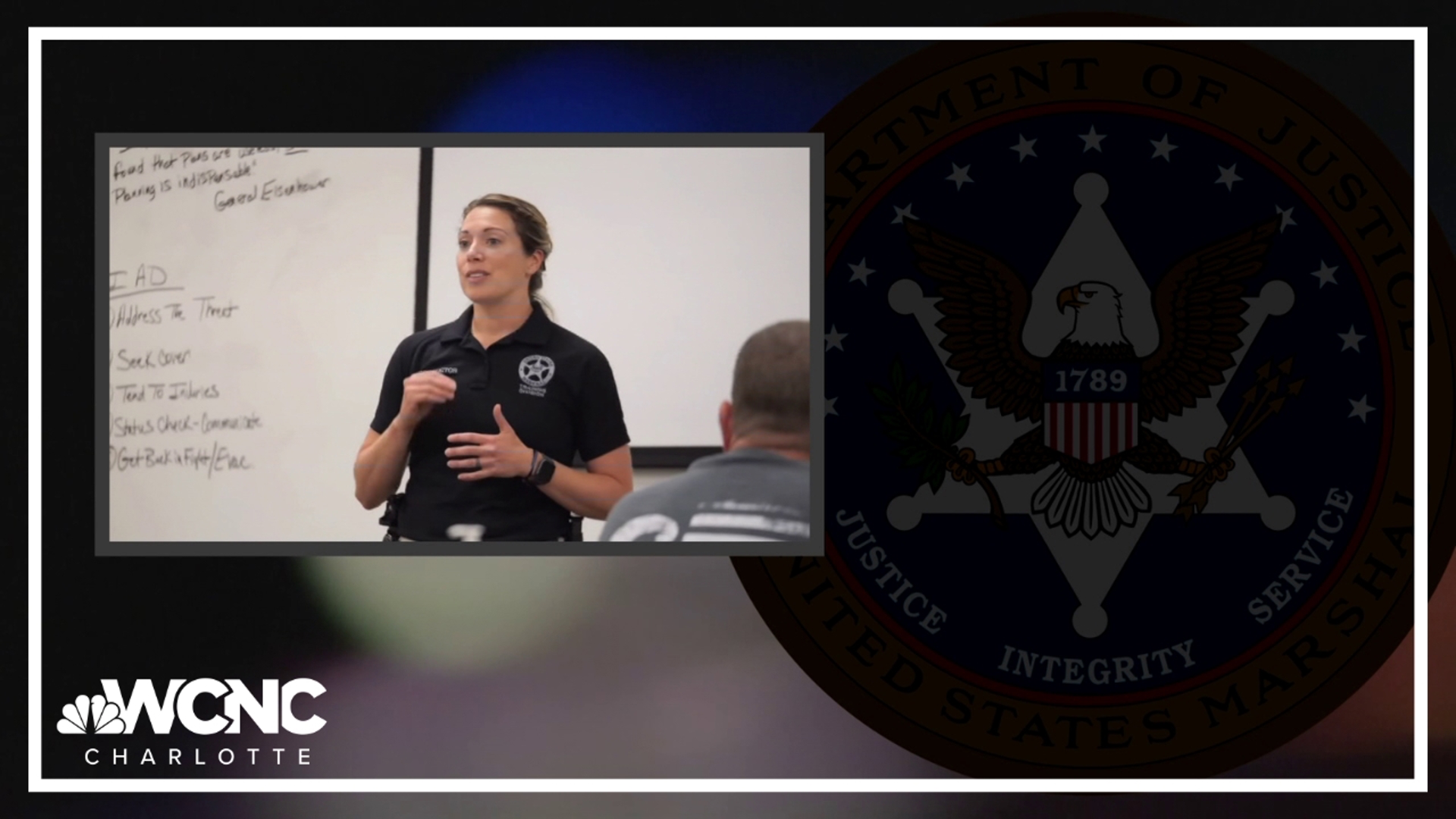CHARLOTTE, N.C. — The shooting deaths of four law enforcement officers in east Charlotte followed renewed efforts by the U.S. Marshals Service to expand training in recent years. However, a 2021 federal report raised serious questions about just how many officers actually received that training.
Three of the officers killed Monday were members of the USMS Fugitive Task Force. A Charlotte-Mecklenburg Police Department officer also lost his life when the task force attempted to serve warrants on Terry Clark Hughes, Jr.
The USMS put an even greater emphasis on training in 2011 following an especially deadly year for deputy marshals and task force officers. In the aftermath of those deaths, the agency created a High-Risk Fugitive Apprehension training program.
While the agency has improved training, a 2021 Department of Justice Office of Inspector General report found 41% (1,529 of 3,722) of the agency’s deputy marshals hadn't completed the potentially lifesaving HRFA training. The report also flagged a concern that there was no requirement for task force officers to take USMS training "even though they are frequently a part of USMS fugitive apprehension teams and are exposed to the same officer safety risks during tactical operations."
A 2019 job posting for a Mecklenburg County task force position listed an expectation of attending one week of training with the USMS.
The OIG report also found the USMS needed to better train "for operations involving open space fugitive encounters and those involving the use of small teams." In addition, the inspector general flagged concerns about the agency repeating "past mistakes." As a result, the report recommended a formal After-Action Review policy.
The USMS concurred with all seven of the OIG's recommendations in that report and indicated a good-faith effort to address the concerns.
At a news conference Tuesday, CMPD Chief Johnny Jennings said task force members are some of the best-trained officers. Meanwhile, the USMS Director Ronald Davis touted the agency's training efforts at that news conference, noting "every" deputy and task force officer receives the HRFA training.
"We provide significant training to all of our task force deputies and task force officers and in fact, we have refined that training and developed it in 2011, based on another tragic year," Davis said. "Every task force officer, every deputy United States Marshal gets what we call High-Risk Fugitive Apprehension training, but like any agency, we will always take a look. We will review this incident to see where there are lessons learned. We are always striving to find ways to reduce deadly encounters and save lives."
An agency training video details the efforts the USMS has taken in recent years to protect officers, so they can identify and respond to potential failures in a controlled setting. The course, offered to non-task force members, builds on the HRFA training.
A report by the Fraternal Order of Police found shootings targeting law enforcement hit a new high in 2023.
Contact Nate Morabito at nmorabito@wcnc.com and follow him on Facebook, X and Instagram.
If your loved one was impacted by this incident, WCNC Charlotte hopes to make this process less painful with our More Than A Number initiative. With your help, we want to share who your loved one was with our viewers in North Carolina and South Carolina. When you're ready, fill out the form below or send us photos, memories and other details about them to desk@wcnc.com.

